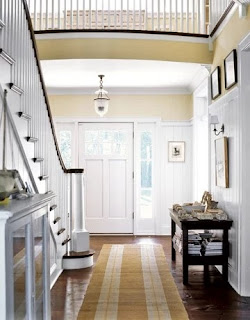Lately I’m getting many return clients, who are requesting help finding a new home. They are looking for a new start, away from some of the issues that needed enhancing in their prior locations.
Are you looking to buy or rent a new place? After moving in, would you rather hear this, “This house has been so lucky for us! Since we moved in all good things have been happening,” or, “Since we moved here it’s been just one bad thing after another?” Obviously, you want to feel that moving into a new place has enhanced your life. Feng Shui can help!
Buying a house can be an exciting experience, even if at times filled with fear and doubts. Applying Feng Shui to the process of buying a house is a wise investment on many levels; it will give you peace of mind, as well as assure that your house is a good financial investment. Good Feng Shui means good energy, and people are always attracted to it! This will sure help with the house sale in the future.
While looking at the floorplans sent to me by my clients, found myself focusing on the positive as well as the potentially draining Feng Shui features of each house.
Use the following checklist when looking for homes or apartments, whether buying or renting:
What to look for outside of the house:
1. Location, and Lot Placement
Be sure your house receives good energy from its surroundings; a clean street, neighbors with well-kept up homes, and nice front and back yard. You also want to try to have a pleasant view from the front of the house. Even if the house does not have an actual view, are the others homes well-kept and are there trees or flowers to enhance the view?
What to avoid
- No downward sloping land behind the house. You want the house to have a good backing. In Feng Shui this is the classical armchair design with trees or a slope/hill to your back, and trees/shrubs on either side, keeping you grounded and protected.
- Houses close to a power generator, utility pole transformer, or high-tension wires: An electro-magnetic field within twenty-five to fifty yards of your home can be highly detrimental to the health and nervous system.
- Houses close to excessive noise: The presence of loud noises will disturb rest, distract from work, and affect intimacy.
- River, rainwater drainage ditch or roadway behind the house: River, rainwater drainage ditch or roadway behind the house also weakens and undermines the stability of the house. Prosperity and good opportunities are easily "washed away".
2. Doors
The front door is very important in Feng Shui as this is the entrance of Ch’i or positive energy. Good colors for front doors are any shade or red, which signifies protection and prosperity (and is easy to see), or black which signifies water and the flowing in of Ch’i, the life force energy. Doors should be sized proportionally to the house. Ideally there would be a curved path leading to the front door. Even if the path is not curved, be sure that it can be lined with healthy flowers or plants, lights, or additional elements to create positive energy as you walk to your front door.
What to avoid
- Front doors that are blocked by trees, walls, brickwork etc.: The energy needs to enter freely. If the entry does have blockages, consider how much work it would take to these have removed.
- A front door that is directly aligned with a back door or large picture window: When you open the front door, can you see straight out the back of the house through a large window or sliding glass door? This may sound like a good thing, but in Feng Shui it is considered negative as it allows the energy to rush straight though the house resulting in a loss of “good energy.” There are corrections for this, ways to slow down energy, but the ideal house would have some walls in-between.
What to look for inside of the house:
1. Main Entrance and Foyer
The entrance foyer is one of the most important areas of your home. How well the house is able to maintain and nourish good energy is much determined by what is happening in the main entryway. What do you see as soon as you come into the house? Ideally you would want to see a pleasantly designed living room or hallway. If the first thing you see is a wall, place a beautiful piece of art (waterscape or natures cape) and an arrangement that would lead the eye in the direction of the energy flow into the home. Avoid placing a mirror facing the entrance, as that would send the energy back out.
What to avoid- Stairs directly pointing to your entrance: Stairs leading immediately up or down directly from your front door create a “river of Ch’i,” flowing the energy away too fast. This is a particularly negative design in Feng Shui, and although there are corrections. It is best to avoid it all together.
- A bathroom or a closet door as the first thing you see: Bathrooms are known to be drains on your Chi. They are not conducive to good energy if they are the first thing you see as you enter. Closet doors indicate blockages. Remember that you want the Chi to enter slowly and meander through every aspect of your home, thereby nourishing you.
2. Room Positioning and Shape of the House
The floor plan is very important when buying a new home. In Feng Shui the ideal shape for a home is rectangular with no missing areas. This way the energy remains in the house and each area of your life is nurtured. These areas, when missing from your home create an impact on your life and therefore it is important to use the Feng Shui Bagua map to analyze the shape or location of rooms of the home you are considering.
Using the Feng Shui Bagua
In the Feng Shui Bagua (Ba-gua) Map, represented as a grid of nine sectors. The Bagua comes from the Chinese philosophy, “The I Ching,” and literally means “eight trigrams,” with the center area being for grounding. Missing any of these areas in the layout of the floor plan will create a void of energy in that area.
Room positioning is also very important to consider when relocating. For instance, the ideal location for a master bedroom is in the back right corner (the Love and Marriage area), kitchens work well in the center (the Grounding area of the home), children’s rooms or craft rooms are auspiciously placed in the middle right area (Children and Creativity ), home offices activate the Ch’i in the Fame (Back middle) or Career areas (Front middle). These are not hard and fast, because in Feng Shui all areas can be enhanced, but if you can begin with a house that already has a good structure you are that far ahead of the game.
What to avoid
- Extremely odd-shaped homes: The overall problem with odd-shaped houses is that they have no easily defined center and are therefore fragmented. They will also tend to have many missing areas.
- A garage under the bedroom, or in the Love and Marriage Area: Garages are very active spaces therefore a bedroom situated over a garage also experiences the same level of activity and tends to disturb one's sleep. Garages tend to also be harder to keep clean, uncluttered, and organized. If you are single, looking for love, or are struggling with a current relationship, the garage’s chaotic energy will add to the problem.
- A bathroom in the Wealth, or Relationship Area of the home: Bathroom in your Wealth or Partnership corners tend to act as drains and you may see both prosperity and relationships "go down" the toilet or down the drain. As with any Feng Shui corrections, the appropriate use of colors, shapes and symbols can be used to strengthen these corners to overcome the bathroom's draining influence; but given the importance of prosperity and the fragility of relationships, why not avoid these if you have a choice.
You can usually correct Feng Shui problems and by being be mindful about it overcome the negative energy. Many corrections, enhancements and cures are on my newspaper columns – www.fengshuibymaria.com.
The goal is to choose the correct house with good Feng Shui, in order to avoid having to make numerous corrections –so, if you have the choice, why not begin with the best.






No comments:
Post a Comment